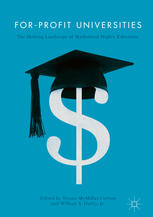

Most ebook files are in PDF format, so you can easily read them using various software such as Foxit Reader or directly on the Google Chrome browser.
Some ebook files are released by publishers in other formats such as .awz, .mobi, .epub, .fb2, etc. You may need to install specific software to read these formats on mobile/PC, such as Calibre.
Please read the tutorial at this link: https://ebookbell.com/faq
We offer FREE conversion to the popular formats you request; however, this may take some time. Therefore, right after payment, please email us, and we will try to provide the service as quickly as possible.
For some exceptional file formats or broken links (if any), please refrain from opening any disputes. Instead, email us first, and we will try to assist within a maximum of 6 hours.
EbookBell Team

4.0
76 reviewsThis edited volume proposes that the phenomenon of private sector, financialized higher education expansion in the United States benefits from a range of theoretical and methodological treatments. Social scientists, policy analysts, researchers, and for-profit sector leaders discuss how and to what ends for-profit colleges are a functional social good. The chapters include discussions of inequality, stratification, and legitimacy, differing greatly from other work on for-profit colleges in three ways: First, this volume moves beyond rational choice explanations of for-profit expansion to include critical theoretical work. Second, it deals with the nuances of race, class, and gender in ways absent from other research. Finally, the book's interdisciplinary focus is uniquely equipped to deal with the complexity of high-cost, low-status, for-profit credentialism at a scale never before seen.